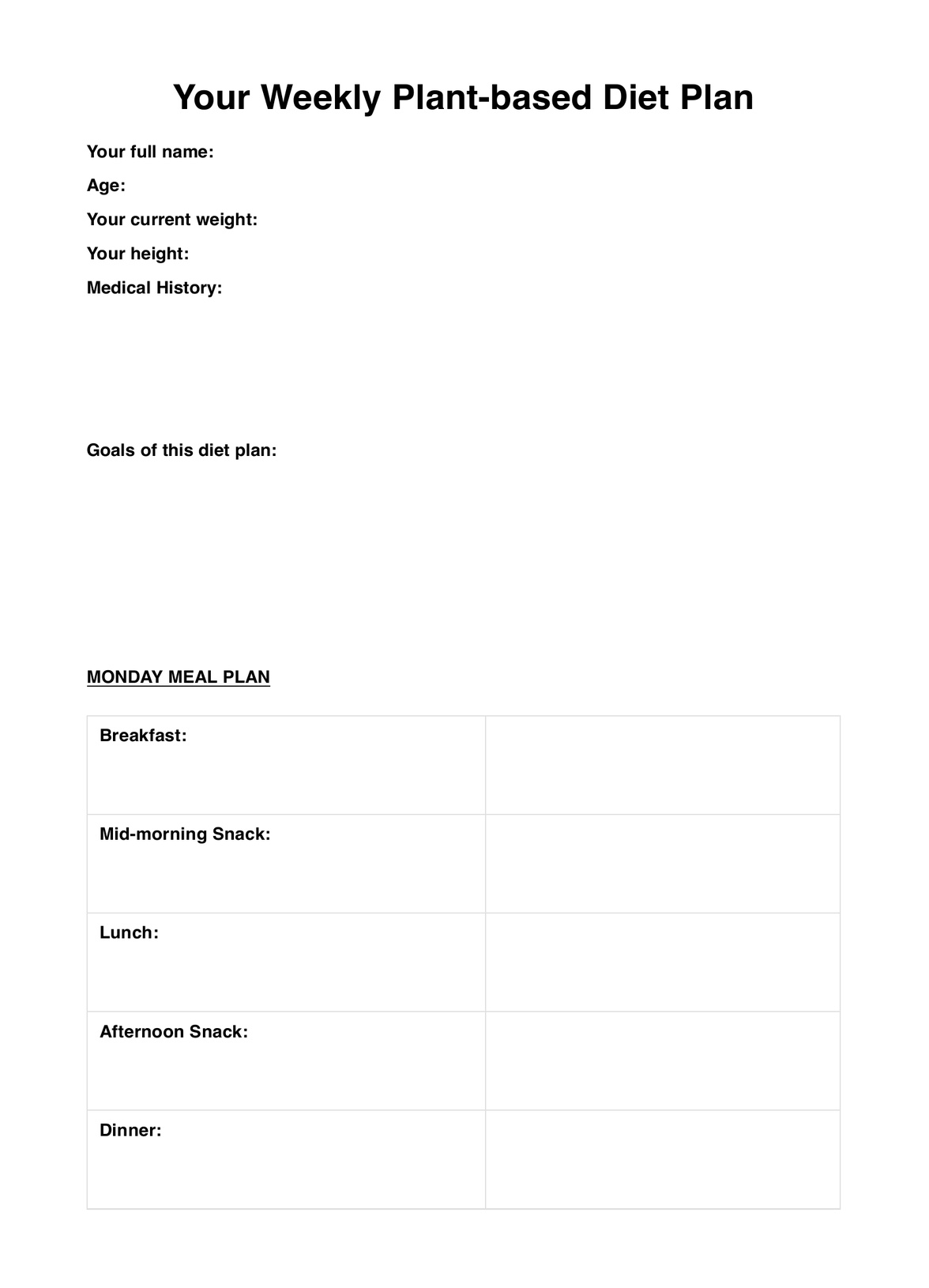You can start by slowly introducing plants and fruits to your diet. You don’t have to introduce a lot all at once. Add a little, then increase the amount and kinds of fruits and vegetables as the weeks and months pass by until you are used to consuming more fruit and vegetables than animal products. You must balance meat, fruits, and vegetables or adopt a completely plant-based diet.

Plant-based Diet Plan
Learn about Plant-based Diet Plans through this guide and follow our free plant-based diet plan example!
Plant-based Diet Plan Template
Commonly asked questions
Yes. It’s possible to build muscle while on a plant-based diet. Meat substitutes like tofu and tempeh have protein. Add lentils, quinoa, almonds, and potatoes to your diet because they also provide protein. Eat meals containing those ingredients and exercise regularly to build muscle.
You have to learn how to read nutritional values or consult a dietitian. Dietitians know about food intake, so you can work with them to create a customized plant-based diet plan that gives you the necessary nutrients, vitamins, and minerals your body needs.
EHR and practice management software
Get started for free
*No credit card required
Free
$0/usd
Unlimited clients
Telehealth
1GB of storage
Client portal text
Automated billing and online payments











